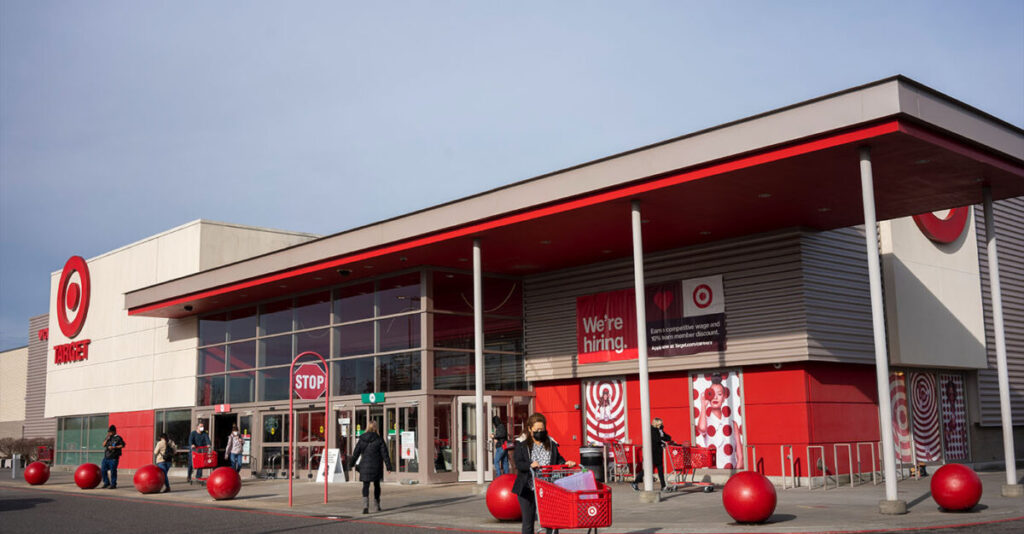By Stacy M. Brown
NNPA Senior National
Correspondent
As Target Corporation grapples with a sweeping boycott led by grassroots activists and civil rights groups, the company’s chair and CEO, Brian Cornell, walked away with a pay package worth $20.4 million last year.
That total marked a 6.3 percent increase over the previous year, primarily driven by $16.1 million in stock awards, alongside a $1.4 million salary and $2.3 million in bonuses and incentives. The company has faced mounting pressure following its decision to walk back significant diversity, equity, and inclusion (DEI) commitments, especially its highly publicized $2 billion pledge in 2021 to support Black-owned businesses, improve the Black consumer experience, and invest in its Black workforce.
The backlash has only intensified since February 1, when Rev. Jamal Bryant and a coalition of grassroots organizations announced a national boycott against the retail giant. That same day marked the beginning of Black History Month and the launch of a public education and selective buying campaign spearheaded by the Black Press of America. The movement has gained momentum nationwide, especially in the Twin Cities, just miles from where George Floyd was murdered in 2020.

“This movement started here, in the Twin Cities,” said civil rights attorney Nekima Levy Armstrong during an appearance on the Black Press of America’s Let It Be Known news show. “We launched the boycott after Target rolled back its DEI programs, just days after Donald Trump returned to power and began his renewed assault on diversity.”
Levy Armstrong said Target’s decision to bypass local activists in favor of meeting with Rev. Al Sharpton, who has openly acknowledged that he wasn’t involved in the boycott, further insulted them.
“They said it with their chest, and now they want to quietly walk it back? Not on our watch,” Levy Armstrong declared. “Instead of engaging with the organizers who live and work three miles from George Floyd Square, Target reached out to someone who admitted he wasn’t even participating.”
Target’s executive vice president and chief community and stakeholder engagement officer, Kiera Fernandez, reportedly took part in meetings about the boycott, but multiple requests for comment and engagement from the Black Press of America and community leaders have gone unanswered.
“They made a Hail Mary pass,” said Monique Cullars-Doty, co-founder of Black Lives Matter Minnesota. “They were hoping Sharpton would catch it and run it into the end zone for them. But we’re the ones who’ve been doing the work, and they know it. That’s why this boycott was always meant to be indefinite—not 40 days, not a fast, but until Target makes good on its promises and accounts for its role in fueling systemic harm.”
Meanwhile, Target’s financial woes have worsened. Wall Street analysts have noted that the company’s stock price has dropped 22.2 percent in the past month, hitting a 52-week low. Despite those challenges, Target has remained quiet on its political contributions, including a $1 million donation to Donald Trump’s re-election campaign last year—the first time the company had ever given to a presidential candidate.
This week, Cornell reportedly warned Trump that his tariff and trade policies could disrupt supply chains, raise prices, and create shortages across store shelves. Yet Cornell also praised his company’s performance in Target’s most recent annual report.
“We entered 2024 with a commitment to stay nimble and generate profitable growth, and even in a challenging retail environment, our team delivered,” Cornell told employees.
“By controlling what we can control, listening closely to consumers, and staying focused on what differentiates Target.” Jaylani Hussein, executive director of CAIR-Minnesota, said the company’s response proves otherwise. “We’ve been ignored,” Hussein said. “They’re still playing politics while losing Black consumers every day.”




